The 2019 Pan African Women in health Conference roundup
Following a successful inaugural conference held in 2018, the Pan African Women in Health (PAWH), hosted its second annual conference on Friday, March 29th, in Johannesburg, South Africa. In commemoration of International Women’s Day, the one-day conference convened women actively working across various sectors within the health sector, while also inviting women working in other non-health related fields to be a part of the conversation. In attendance were health professionals from the public, private and NGO sector spanning across generations and domains including university students, nurses, medical doctors and advisors, dieticians and nutritionists, laboratory advisors, public health professionals, researchers, business owners, as well as executive women leading in the pharmaceutical and medical technology corporations, to name a few. The PAWH 2019 conference served as an opportunity to highlight the successes of the organization and demonstrate key milestones achieved over the past year to further the cause of women in health on the African continent.
Opening remarks: Making it impossible for women to go unrecognised
The conference opened with a welcome and introduction to Pan African Women in Health by Ms Belinda Ngongo, founder of PAWH. She shared the inspirational story of how PAWH began and the story behind creating PAWH as a platform specifically for supporting African women. She highlighted the design thinking framework and key themes from the 2018 conference – determining the focus and mission of the PAWH initiative, addressing the lack of role models and opportunities for women, and discussing the need to change the narrative – which set the stage for the PAWH platform and established the position women want to take when it comes to health.
Ms Ngongo laid the ground for the 2019 gathering; describing the PAWH approach as one that seeks to facilitate the “sharing of stories about the “missing middle”and ordinary women who are “no celebrities” but doing impactful work infront of and behind the scenes, sometimes in the most trying of conditions, to improve health outcomes in their communities and for generations to come. PAWH also seeks to ensure that women in health have access to strong networks and mentorship. In reflection of the spirit of the 2019 conference, she ended her remarks by saying “When women come together as change agents it becomes impossible for them to go unrecognised.”
Special address: You touch a woman, you strike a rock
One of the highlights of the 2019 conference included that special address by Ambassador Thandi Lujabe-Rankoe who attributed the independence that many countries currently enjoy to the role women played in standing up against injustice and their ability to come together, unified against a cause, and most importanlty to keep a secret.
Ambassador Lujabe-Rankoe went on to note the significant role played by women on South Africa’s liberation struggle. She referred to the famous 1956 March by Women where women came out to protest against the killing of black men as a result of the Pass Law system. She went further to talk about the Kimberly Conference 1990/91 which deliberated on the vital social transformations that South Africa needed and the key role the Women’s League played in pushing for the participation of women in government, to hold at least 30% of seats in the Executive, and fighting for the recognition of women as part of the liberation movement.
Lujabe-Rankoe concluded her remarks by reminding women that “you have to fight for your right to be in a position of leadership.” Many of the delegates at the conference supported the Ambassador’s views, acknowledging that when it comes to fighitng for justice, particularly for women: “If you don’t talk about it, nothing will change”.
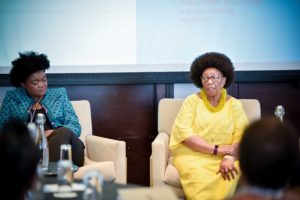
Hear her: Exceptional women share their stories
During the conference, two women in health shared their stories with the audience, reflecting on both their life and career journeys: Dr Sule Burger (MD), secretary general of the International Association of Student Surgical Societies, and Dr Alice Achieng Ojwang (PhD), a healthcare practitioner, specialising as a Dietician.
When Dr Burger took to the podium, she moved the audience with her soft and powerful voice, sharing a story of determination and drive for pulling and pushing others forward. She talked about growing up in a household of white freedom fighters in South Africa. She noted that, growing up in such a household contributed to the reason why she would only become conscious of white privilege after arriving at university. Dr Burger shared stories about providing care for the vulnerable and marginalized. Urging all present that radical transparency amongst African women is necessary to spur much needed development and transformation of the health sector, particularly with providing care to women. She reminded the conference attendees that there is power in the collective. It is this collective which makes her believe that “As Africans, we are enough”.
Dr Alice Achieng Ojwang shared a powerful story about the challenges she faced in her childhood, because of a speech impediment, the lack of support she received from family, and her journey to overcoming some of the obstacles she faced. She detailed how the help of a school nurse and a teacher led her to take up drama, poetry, and music lessons to channel her energy, which would eventually result in her overcoming her stammer and consequently improving her overall confidence and performance in school.
Ojwang went on to share her path to becoming the Regional Obesity Trainer for a renowned healthcare company. She indicated that through her journey, she learnt many lessons, including the importance of persistence, the fact that raising a child is the responsibility of the whole community, and that everybody’s journey is unique.
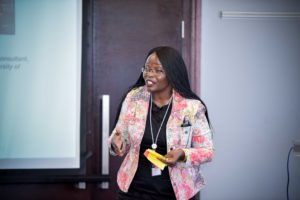
Dealing with the mentorship challenge
One of the three pillars of PAWH is mentorship. A mentorship platform has been established to connect young African women with experienced health professionals for personal growth and career guidance. During the PAWH conference, a fireside chat between a mentee and mentor pair elaborated, in real time, the importance and power of having a mentor. Ms Hyasintha Ntuyeko, founder of Kasole secrets, shared the story behind her social enterprise and spoke about how mentorship played an important role in spearheading and advancing her social enterprise.
Kasole secrets was brought about by the suffering Hyasintha endured due to severe menstrual cramps, which disrupted her ability to learn and present her best self. According to her, it was only through seeking the help of older women, who were willing to share their stories of complicated menstrual cycles, that she started using advocacy and community mobilisation, to raise awareness on menstrual hygiene management, and later on begin to produce and distribute sanitary napkins made from bamboo. Through her efforts, she successfully advocated for the official implementation of Menstrual Hygiene Day in Tanzania.
When Ntuyeko was asked about what she took to be the main takeaways from her mentorship experience, Ntuyeko singled out the importance of building partnerships and engaging stakeholders.
In answering another question from a participant, Ntuyeko’s mentor, Ms Belinda Ngongo, offered key elements that a mentee needs to take into consideration when choosing a mentor. She advised delegates of the importance of being mentally ready, having total commitment to the process, and the understanding that a mentee can also provide support to a mentor, as the mentorship relationship is a circular exchange.
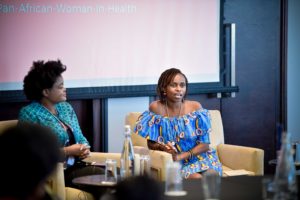
Guest Lecture: The health of women in Africa is an economic imperative
Dr Yonette Thomas presented the conference’s guest lecture, leading a discussion on the economic value of the health of women and girls in Africa. She described women as neoteric groups, those who advocate new ideas. While highlighting the multiple determinants of health, including, but not limited to, economics, education, social and behavioural factors, Dr Thomas also noted the catalytic role that the cultural context plays in the expression of these health determinants.
In her presentation, Dr Thomas called for a closer investigation of the causes of death among women in Africa and greater discussion around how to solve the growing health issues. She emphasised the need to think of health outcomes in terms of geography and culture, rather than as a monolith one size fits all.
A panel discussion by delegates with experience working at the community, national, governmental and international level in Africa complimented the guest lecture. Professor Stella Anyangwe, a former Southern Africa WHO representative, emphasised the need for universal health coverage to reach those in the most remote areas. PAWH project manager and public health expert, Ms Ramatoulie Jallow discussed the importance of ensuring that there is no separation between “the human” and “the interventions” that are implemented to address determinants of health. Ms Sandhya Singh, non-communicable disease (NCD) head at the South African National Department of Health called for more research into the critical push factors that influence women to engage in high risk behaviours.
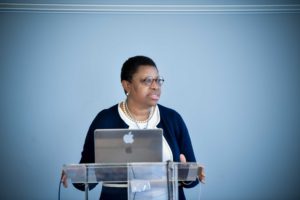
Panel Discussion: Navigating career journeys in the 21st Century
Delegates at the conference also listened to and engaged with a panel discussion on navigating a career journey in the 21st century with panellists giving different views and perspectives including Ms Marie-Andree Gamache (private sector perspective), Ms Progress Oladimeji (NGO perspective), Dr Atiya Mosam (youth, academic perspective), and Dr Mothomang Diaho (entrepreneur perspective). Issues discussed included how women can succeed in different sectors, strategies to create a support system and strengthen ones confidence within the workplace to succeed whilst maintaining healthy lifestyles.
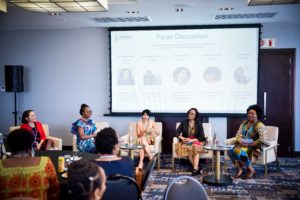
Skills development workshop: Capping the conference
The conference ended with a 2-hour deep dive session to drive transformational thinking and accelerate growth. Topics discussed with workshop facilitator, Donna Rachelson, included personal branding and networking for success. One of the important takeaways from this workshop was the importance of keeping in mind that when it comes to personal branding, it is important to identify what makes you unique remembering that – “you are either remarkable or replaceable.” From this workshop, delegates walked away with the understanding that great brands retain a legacy, and that their brand needs to stand for something that makes a difference.
Delegates also discussed some tips on engaging with people to build social capital. An important take away from this particular session was that networking is about building relationships before you need them.
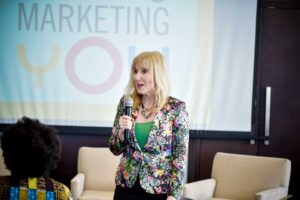
Conclusion
Undoubtedly, the 2019 Pan African Women in Health Conference presented an opportunity for listening, learning, skill building and networking for all participants. It was yet another indication by women in Africa that they are conscious of the critical role played by becoming visible. Delegates who participated in this year’s conference will agree that the time for women who take the backseat and lament their challenges is long gone. Now is the time for women to come together as change agents and make it impossible for the world to ignore them.
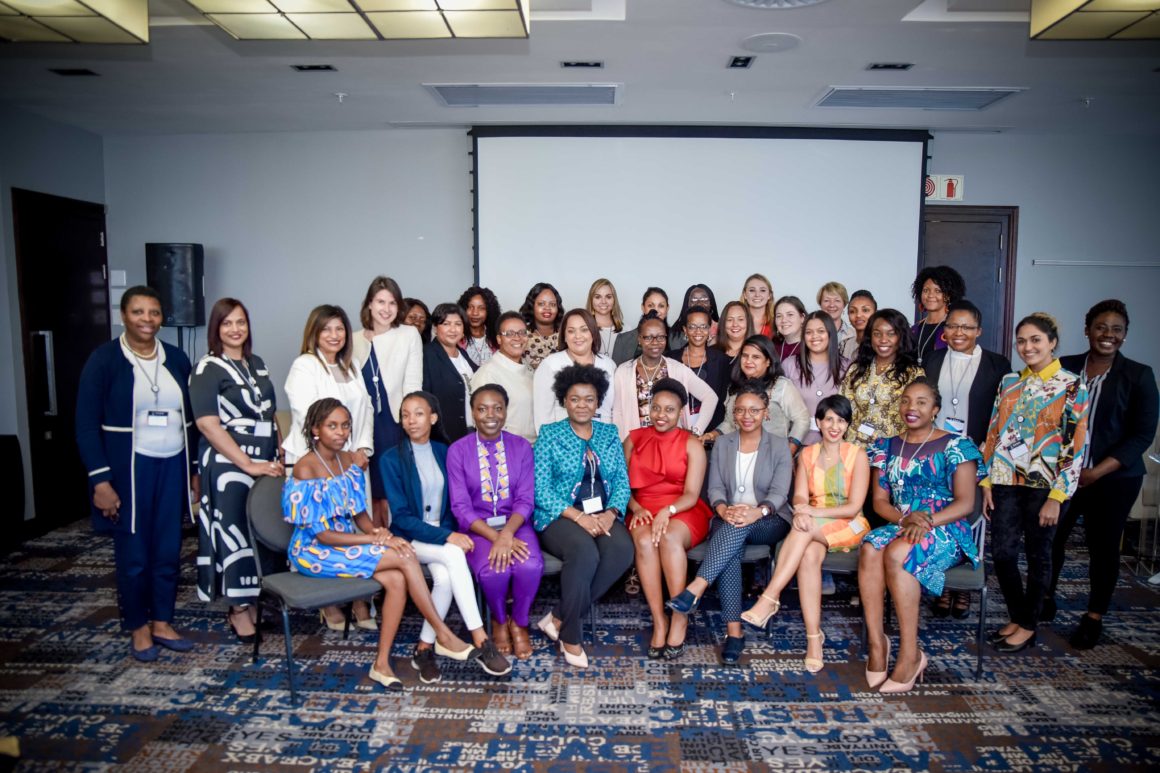
Leave a Reply